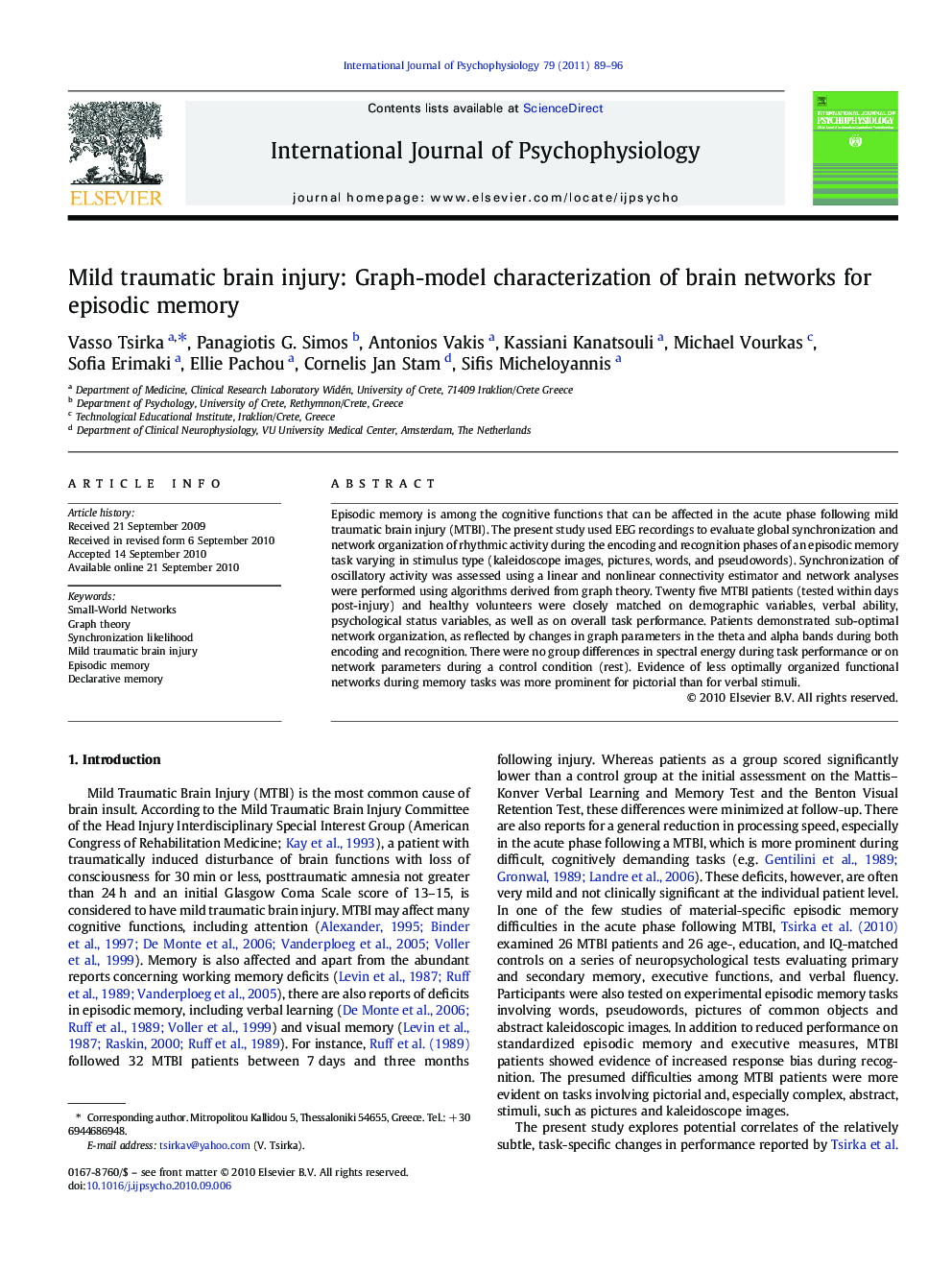| Article ID | Journal | Published Year | Pages | File Type |
|---|---|---|---|---|
| 930298 | International Journal of Psychophysiology | 2011 | 8 Pages |
Episodic memory is among the cognitive functions that can be affected in the acute phase following mild traumatic brain injury (MTBI). The present study used EEG recordings to evaluate global synchronization and network organization of rhythmic activity during the encoding and recognition phases of an episodic memory task varying in stimulus type (kaleidoscope images, pictures, words, and pseudowords). Synchronization of oscillatory activity was assessed using a linear and nonlinear connectivity estimator and network analyses were performed using algorithms derived from graph theory. Twenty five MTBI patients (tested within days post-injury) and healthy volunteers were closely matched on demographic variables, verbal ability, psychological status variables, as well as on overall task performance. Patients demonstrated sub-optimal network organization, as reflected by changes in graph parameters in the theta and alpha bands during both encoding and recognition. There were no group differences in spectral energy during task performance or on network parameters during a control condition (rest). Evidence of less optimally organized functional networks during memory tasks was more prominent for pictorial than for verbal stimuli.
Research Highlights► MTBI patients had sub-optimal network organization during memory in th and a bands. ► No spectrum difference during memory task. ► No network difference during control task. ► Less optimal network organization especially during memory for pictorial stimuli.
